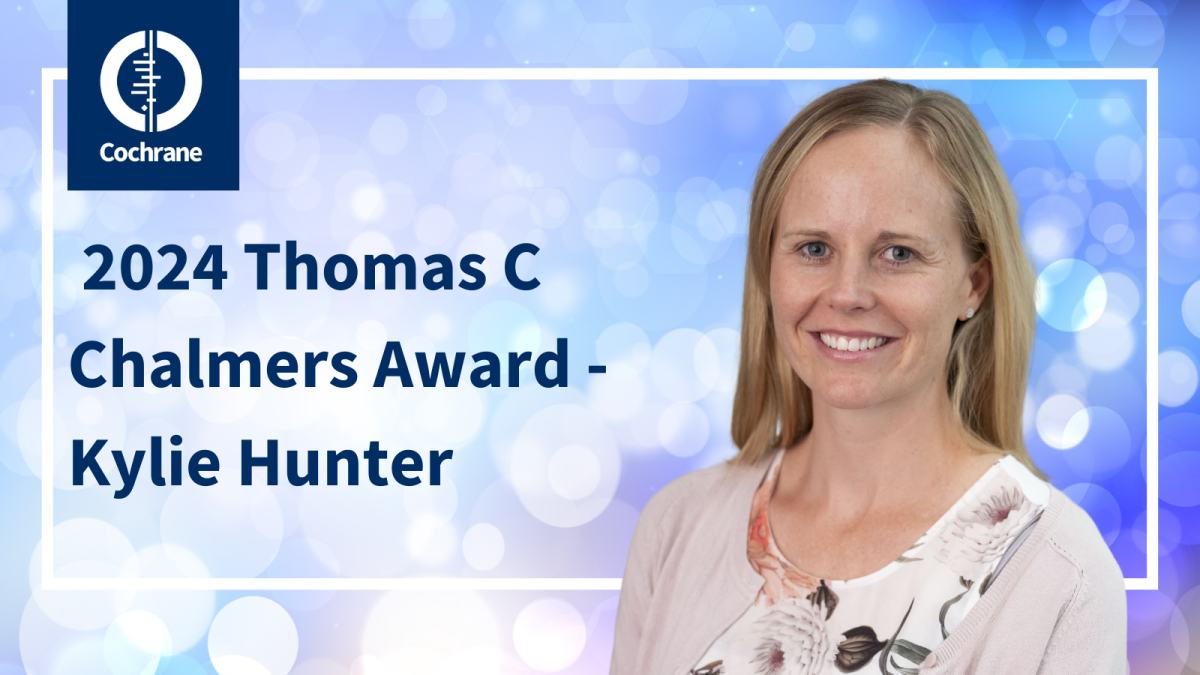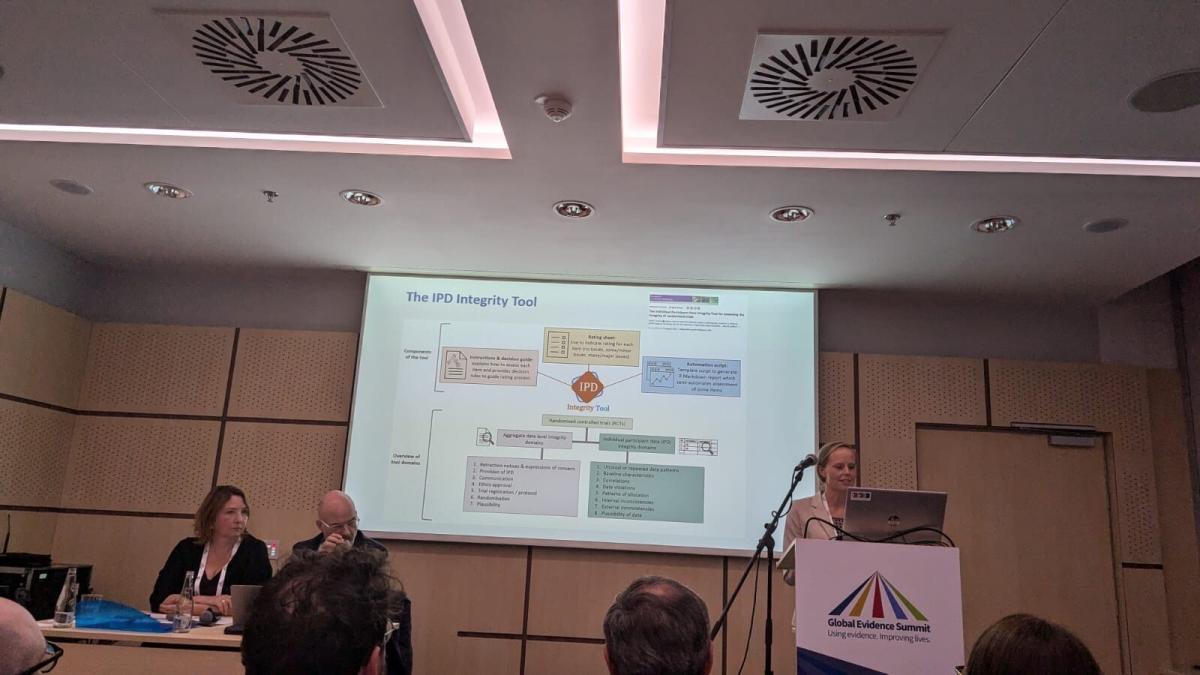
Dr Tom Chalmers was an outspoken advocate of randomised trials, whether at the bedside, at professional meetings, in class or in situations pertaining to his own life. His creativity spanned his entire career, influencing clinicians and methodologists alike. He is perhaps best known for the notion ‘randomise the first patient’, his belief that it is more ethical to randomise patients than to treat them in the absence of good evidence. In his later years, in arguably his most important work, Tom and his colleagues showed that had information from RCTs been systematically and cumulatively synthesised, important treatments such as thrombolytic therapy for myocardial infarction would have been recognised as useful much earlier.
The Thomas C Chalmers Award was initiated by Tom Chalmers himself and further supported with individual donations from friends and family to celebrate and recognise Tom's interests and achievements. The prize is awarded to an early career investigator presenting on methodological issues at the Cochrane Colloquium or the Global Evidence Summit. The presentations must demonstrate originality of thought, high-quality science, relevance to the advancement of the science of systematic reviews and clarity of presentation.
The Thomas C Chalmers Award for Best Short Oral Presentation goes to Kylie Hunter, Research Fellow, NHMRC Clinical Trials Centre, Faculty of Medicine and Health, The University of Sydney.

Kylie won for her short oral presentation at the Global Evidence Summit called The Individual Participant Data (IPD) Integrity Tool for assessing the integrity of randomised controlled trials
What is already known?
- Growing concerns about the trustworthiness of research have prompted calls to scrutinise studies' IPD, that is, raw line-by-line data for each participant.
- Access to IPD allows for more comprehensive integrity checks compared with aggregate or published data, and can considerably increase detection of false trial data.
- Despite this, existing tools focus on assessing aggregate or published data, and guidance on checking IPD for integrity issues was lacking.
What is new?
- We addressed this by developing the IPD Integrity Tool to screen randomised controlled trials (RCTs) for integrity issues using IPD.
- The tool includes 18 IPD-specific items grouped into eight domains, including unusual data patterns, issues with baseline characteristics, lack of expected correlations, date violations, allocation patterns, internal and external inconsistencies, and data plausibility.
- The tool has three components: a decision guide, rating sheet and R markdown template to enable automation of many of the IPD checking processes.
Potential impact for Research Synthesis Methods readers
- The IPD Integrity Tool enables readers to scrutinise the IPD of RCTs to detect integrity issues, and provides guidance on how identified issues may be managed.
- By bolstering awareness and capacity, we aim to rebuild trust in scientific research, reduce research waste, advance evidence-based healthcare and ultimately improve patient outcomes.

We interviewed Kylie to gain insight into her thoughts on the significance of this prestigious recognition.
Can you briefly summarize what your presentation is about?
My presentation introduced the Individual Participant Data (IPD) Integrity Tool, which I developed with the NextGen Evidence Synthesis Team at the NHMRC Clinical Trials Centre, University of Sydney. This semi-automated tool addresses growing concerns about the integrity and trustworthiness of medical research. It enables researchers, editors, and others to detect potential integrity issues in randomised trials using individual participant data (i.e. row-by-row data for each participant), going beyond traditional methods that assess only published or aggregate data. This is useful because many integrity issues can only be identified by assessing individual participant data. We’ve seen many studies that looked ok on paper, but serious trustworthiness concerns emerged once we examined the IPD. The tool can be used not only for IPD meta-analyses, but also to scrutinise data from individual trials in aggregate data meta-analyses if concerns arise, and I have already been contacted by several journal editors that are interested to use the tool to examine trials prior to their publication.
What does this award mean to you personally?
I am greatly honoured to receive this award. Over the years, I have been inspired by previous recipients and it’s exciting to now join their ranks! This recognition from Cochrane has already been instrumental in helping to disseminate our tool and raise awareness about integrity issues – an area I’m very passionate about.
Do you have any advice for colleagues considering entering for this award in the future? Any tips for their presentation?
Go for it! My advice is to reflect on what you’ve enjoyed in other presentations and try to incorporate similar techniques to keep your audience engaged. Think about what you want your key take home message to be, and make sure you articulate this clearly. Also, spend time refining your slides - less text, more visuals, and maybe a touch of humour or a personal anecdote to make it memorable!

